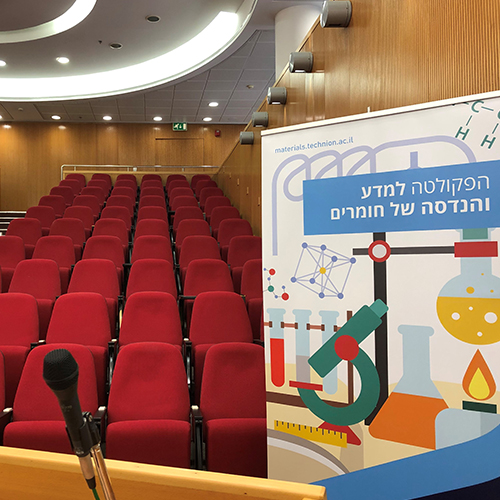
19/07/2025
David Wang Auditorium, 3rd floor Dalia Maydan Bldg.
Dr. Eli Kraisler
Fritz Haber Research Center and the Institute of Chemistry, Hebrew University. Jerusalem, Israel
Density functional theory (DFT) is the leading theoretical framework used to describe electronic
structure of materials. The most common approach in DFT is that of Kohn and Sham: it describes a
material, namely, a system of N interacting electrons, via a fictitious system of N non-inteacting
electrons subject to an effective potential termed the Kohn-Sham (KS) potential. The KS potential – a
central quantity DFT – is known to exhibit sharp, non-analytic properties, such as steps and plateaus, in
various scenarios, such as dissociation, ionization, excitation and charge transfer. However, these
properties are rarely modelled in common approximations.
In this talk I discuss the step structure of the KS potential, highlight the common origin of steps that
appear in different situations and underscore the significance of steps, serving the bridge between the
real, many-electron energy differences and the fictitious Kohn-Sham energies. I further show that the
Pauli potential – a central quantity in orbital-free DFT (OF-DFT) and in the emerging exact electron
factorization (EEF) method – exhibits steps, as well. Surprisingly, detailed analytic characterization of
the Pauli steps opens the door to accurately approximate also the KS potential. I suggest ways to
encorporate potential steps in new approximations to exchange and correlation in DFT.


